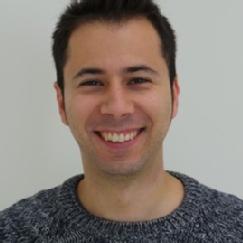Dr Carlos Cámara-Menoyo
Research Fellow, Creating Interfaces
carlos dot camara at warwick dot ac dot uk
Ramphal Building, School of Cross-Faculty Studies, University of Warwick, Coventry, CV4 7AL
Biography
Carlos Cámara-Menoyo is a Research Fellow at the Institute for Global Sustainable Development. He holds a MArchitecture and a PhD in Information and Knowledge Society. His PhD thesis, “Urban Commons: Lessons from Barcelona at the Beginning of 21st Century. A characterization proposal from the praxis.", awarded the IND+I Science prize in the category Metropolitan Innovation Policies, was a multidisciplinary approach to the concept of urban commons, which pursue the production of fairer and more resilient and inclusive cities according to alternative ways of understanding human relations, politics, housing, education, economics, cares and inclusion, amongst other factors.
Carlos is a versatile, transdisciplinary, and passionate person with a mixed technical and sociological background. He has combined working in the private sector as an architect, drupal developer, product owner, GIS technician, and data scientist, as well as working in Higher Education. Regarding that matter, he has extensive teaching experience as a Lecturer at the School of Architecture and Technology at Universidad San Jorge (Spain), Associate Lecturer at the MSc on Cities and Urbanism at Universitat Oberta de Catalunya (Spain), and Associate Lecturer at the School of the Built Environment at Oxford Brookes University, amongst others. As a researcher, he has worked as a research associate at Urban Transformation and Global Change Laboratory (Universitat Oberta de Catalunya), exploring the geographies of digital capitalism and bottom-up alternatives through their research areas on urbanization processes and co-creation, and Open Source Architectures at Universidad San Jorge, contributing in the projects “Zaragoza’s Social Risk Map” and “Accessible Zaragoza”, as a PI.
As an activist, he contributes to open and alternative projects and initiatives such as OpenStreetMap, Wikipedia, or QGIS, is a member of several cooperatives of the social economy, and is one of the co-founders of Collaborative Mapping, an action-research group to promote the tools and knowledge to make open and alternative cartographies available to the general public. He has also taken part in several mapathons and hackathons, such as MSF’s Humanitarian mapathons (organizer), Meta-decidim’s Participatory Science’s workshop of data on tourist accommodation, or Tabakalera’s Summerlab on Data Literacy (invited), amongst others.
The combination of such diverse experiences, knowledges, and skills has articulated his research agenda within the Urban Studies, structured around two pillars: 1) the commodifications between cities, technology, and society, and 2) co-production and collective-action. So far, he has applied a spatial reading with a social perspective to the topic of urban, spatial inequities, and, more specifically, on urban mobility for disabled people and urban commons to find ways in which cities can be more resilient and egalitarian.
At Warwick, Carlos continues to develop his goal to pursue a positive impact on people’s lives through the shaping of physical and digital spaces while applying his skills regarding visualization, VGI, and maps in the Creating Interfaces research project.

